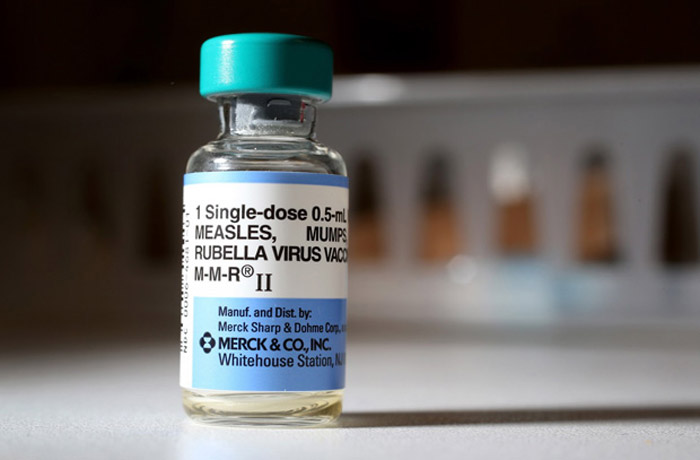Public health officials with Manitoba Health, Seniors and Long-Term Care are notifying the public of five confirmed cases of measles in southern Manitoba, all connected to an outbreak in Ontario.
These cases involve five individuals living within the same household, all of whom were contacts of lab-confirmed cases while recently traveling in Ontario. The individuals have been asked to isolate at home.
As of Jan. 29, 81 cases (54 confirmed and 27 probable) of measles have been reported in Ontario in 2024 and 2025.
People who were at the following locations are being notified of the possibility of having been exposed to measles virus:
- Reinland Mennonite Church, 200 Redhawk Tr., Winkler – Sunday school and main service on Jan. 26 from 9:15am to 12:30pm. People who were at this location are asked to monitor conditions until Feb. 16.
- Health Sciences Centre, Winnipeg – first floor children’s laboratory and waiting rooms of Clinic X and Clinic W on Jan. 31 from 11:30am to 2pm. People who were at this location are asked to monitor conditions until Feb. 21.
- Health Sciences Centre, Winnipeg – Orange Bison Zone Level 1 in and around Guildy’s Eatery and adjacent corridors on Jan. 31 from noon to 3pm. People who were at this location are asked to monitor conditions until Feb. 21.
- Health Sciences Centre Winnipeg – fourth floor cardiology clinic and waiting room in Children’s Hospital on Jan. 31 from 1pm to 4pm. People who were at this location are asked to monitor conditions until Feb. 21.
The public health investigation is ongoing and additional exposure locations may be added. As more contacts are identified, individuals may be asked to isolate and consider vaccination.
Public health is asking anyone who was in these locations during these times to check their immunization records and ensure they are up to date with a measles vaccine, either measles, mumps and rubella (MMR) or measles, mumps, rubella and varicella (MMRV).
It is unlikely people born before 1970 or who have ever received a measles vaccine will get the disease. However, as a precaution, watch for symptoms of measles until the date indicated in the above exposure table. To learn the symptoms of measles and what to do, visit gov.mb.ca.
- People exposed in these locations who are born in 1970 or later, have never received a measles vaccine AND never had a measles infection should:
- Reduce exposures with others, especially anyone who has a weakened immune system or is unimmunized, from the fifth day after exposure to the 21st day after the latest exposure. Individuals are not contagious in the first four days following the first exposure.
- Get vaccinated. The measles vaccine is recommended.
Watch for symptoms of measles until the date that corresponds with their situation as indicated in the above table.
Certain people should not get the measles vaccine including infants less than six months of age, pregnant women and people with weakened immune systems. These individuals should contact their health-care provider or public health as they may be eligible for preventative treatment.
If symptoms develop, Manitobans are advised to isolate at home and contact their health-care provider and advise them of the potential exposure to measles. It is best to call ahead so health-care staff can take steps to reduce the exposure of other people to the virus.
Symptoms of measles generally appear seven to 21 days after exposure. Initial symptoms may include fever, runny nose, drowsiness, irritability and red eyes. Small white spots may also develop on the inside of the mouth or throat.
Several days after the initial symptoms, a red blotchy rash appears on the face and progresses down the body. Measles can lead to complications including ear infections, diarrhea, pneumonia (lung infection) and encephalitis (brain inflammation).
Measles is a highly infectious communicable disease that is spread through droplets in the air formed when coughing or sneezing. An infected person can spread the virus from four days before the rash appears until four days after. The disease tends to be more severe in infants and young children and can be life-threatening.
Immunization is the only means of protecting people from contracting measles. Contact an immunization provider such as a local public health office, physician or nurse practitioner to ensure everyone is up to date.
In Manitoba, a two-dose measles vaccine program for measles, mumps, rubella and varicella (MMR or MMRV) is routinely provided for children who are at least one year of age and again when aged four to six. In the case of a measles exposure, a second dose may be given earlier than four to six years of age.
Public health officials will continue to monitor the situation and will provide updated information as necessary.




